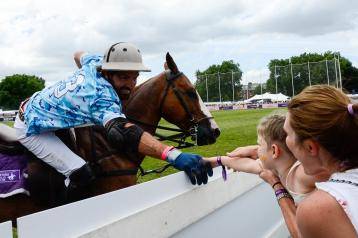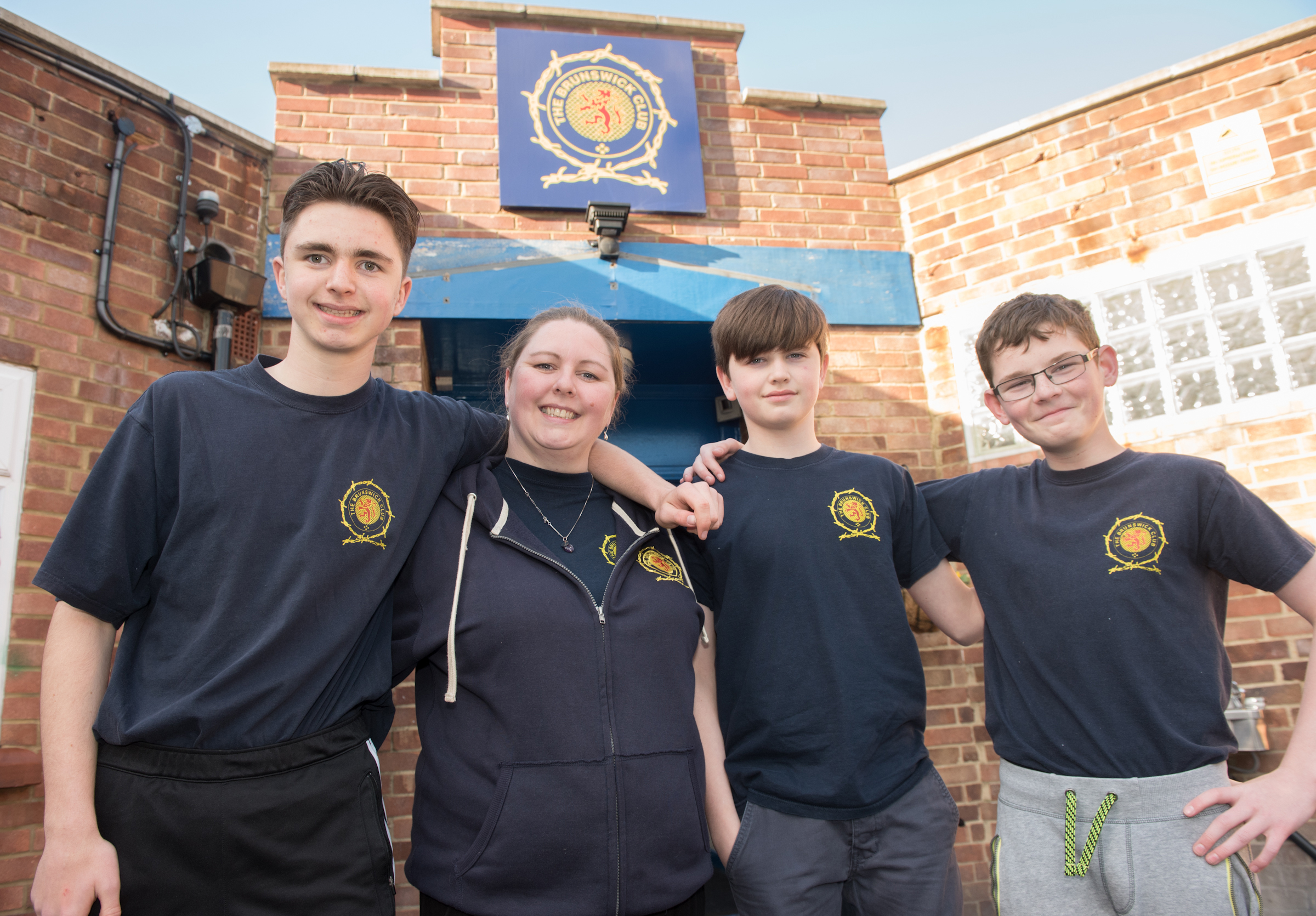
Members of the Brunswick Club for Young People in Haldane Road
Seventy five years after the end of World War II, an idea born of adversity in a Nazi prisoner of war camp is still going strong in Fulham – helping set hundreds of young people each year on the road to a happy and fulfilling life.
The Brunswick Club for Young People is hidden away in Haldane Road – take a left as you wander northwards up North End Road.
Part-funded by Hammersmith & Fulham Council its premises seem unassuming from the front. But they are Tardis-like – with gym space, a football pitch, exercise areas and a treasure trove of activity potential for the child with an active mind, who wants more active feet.
But the real magic of the place is not so much in the facilities, but in the way they are put to use: taking youngsters from childhood to young adulthood, while instilling in them the life skills of competitiveness, discipline and teamwork.
This is what won the Brunswick a special award of the H&F Civic Honours last year.
And it all started at Oflag 79, a prisoner of War camp for British officers on the outskirts of Brunswick – near Hanover, in north-central Germany.
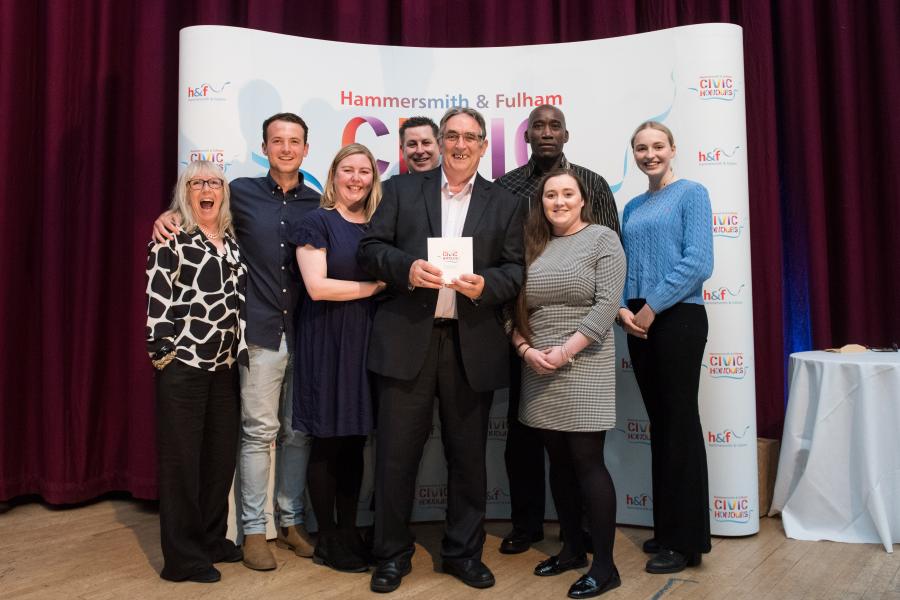
Beginnings in adversity
In the camp, a set of dreary barrack buildings by the autobahn, 2,500 British officers waited, detained by the enemy, longing for the end of the war.
In keeping with the effort of the allied forces, this was not solely a community from these shores.
Men from Canada, Australia, New Zealand, South Africa and India were there too: and the multi-cultural community had quite a well-developed society, despite adverse conditions.
A lecture theatre, orchestra, churches, a Hindu Temple and Mosque provided for the needs of all.
But this was no holiday camp: hunger and terrible cold were a reality, sanitation primitive, and many of the buildings bomb-damaged.
From here, the dream was hatched.
Percy Flood, a Major in the Royal West Kents, is credited with the idea of the club, as we now see it.
“Let the officers in this camp set to work now to found and endow a Boys Club in one of our cities, perhaps London, for some of the boys who will be the Men of Tomorrow and who need opportunities to develop their potential,” he said.
“Let this Boys Club be a memorial to the comradeship we have shared in our captivity and let it be a living memorial to those of our friends who have fallen.”
Read more about the club's history.
Discipline, fair play and belonging
The founding committee didn't have to look far to come up with a name for the place: The Brunswick was named after where they spent so much time during the war.
Works started not long after the war ended in 1945, and it was up and running as a boys club F70thfrom 1948 (since 1997 it has welcomed all young people, regardless of gender).
Fast forward to 2020 and Piers Player, senior youth and development worker of the club, is talking with pride about the newly installed 4G artificial pitch out the back of the main building.
“It's in constant use from 4pm, seven days a week,” he says of the state-of-the-art facility, financed thanks to cash from the London Marathon Charitable Trust.
That is just one of a number of finance streams that run into The Brunswick: about a third of its funds come from H&F Council, a third from various charitable trusts, and the rest from renting out its facilities to other groups or commercial bodies.
So much of the club's work involves football. It has teams at five age levels from Under 10s to Under 14s.
“Football is such a good means of learning about discipline, fair play, belonging,” says Piers.
Evidence that it also teaches about winning is situated upstairs.
There, in no less than five glass-fronted trophy cabinets, are possibly 200 pieces of silverware: won over the years by teams representing the Brunswick.
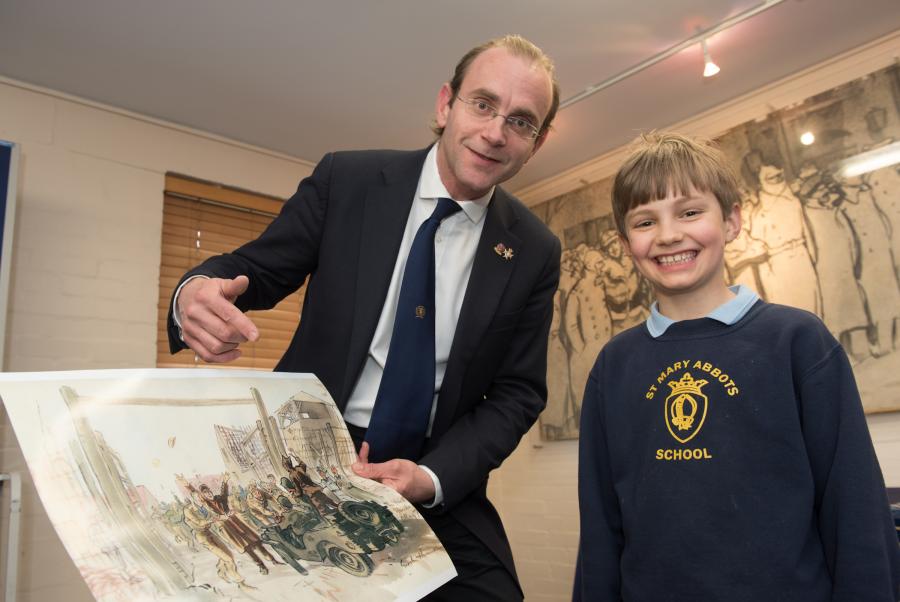
Something special on the doorstep
Danny Volino, The Brunswick's club manager arrives, and as always seems to be the case, he's on his way somewhere with a big bag of footballs.
Immediately his presence is felt: his personality, and his drive, are key to the place – and generations of young people know him through the football training he has overseen for more than 30 years.
Danny and his team picked up the Lifetime Achievement award at last year's H&F Civic Honours, on behalf of the club.
While the club offers all manner of other activities – taekwondo, cooking, arts, day trips to visitor attractions – it's clearly the football that powers Danny along.
About 1,000 young people per year come through the doors of The Brunswick, and a good number of them take part in football at some level or another.
Well collated figures show they come from all races and backgrounds, and range all the way from school Year 2, up to the age of 19.
More than half come from the immediate area – less than a ten minute walk away.
The Brunswick gives children and young people from the Clem Attlee and West Kensington estates a facility almost on their doorstep – but those youngsters by no means make up anything like a majority of attendees.
The rest come mainly from elsewhere in the borough, with one in five overall from further afield.
On to the Premier League
The football training is special, because it gives the kids a role in something they can really have an influence over.
If you represent a Brunswick team, you get a jacket with the club crest on one side, and your initials stitched on the other – just like the pros.
In fact one of those to wear that jacket is now a pro himself: TaShae Andall-Gibbons is a forward on the books of Sheffield United.
From Oflag 79 PoW camp, to the streets of Fulham, to the Premier League – the Brunswick just keeps writing its own inspirational story.
Back upstairs, and those trophies in the cabinet are still gleaming.
But at the other end of the same room, is a glimpse of where it all began: a mural of the original founding committee, in their PoW uniforms, out in the original Brunswick.
The prisoners look across at the spoils of their creation: the trophies that represent the great efforts of thousands of young people, and dedicated club staff and volunteers, over three quarters of a century.
Was there ever a better example of a dream and its realisation being so clearly illustrated?
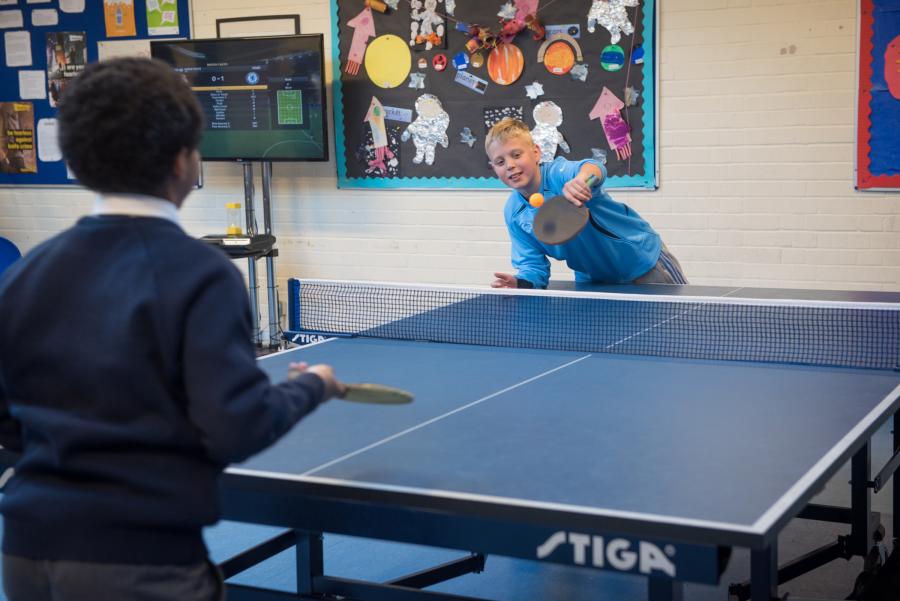
Want to read more news stories like this? Subscribe to our weekly e-news bulletin.
By sending us a comment, you are agreeing to our publishing policy.




